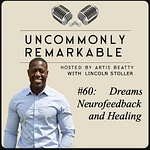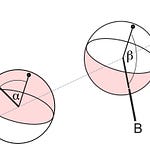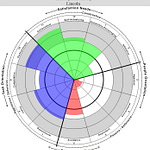“The only normal people are the ones you don't know very well.”
— Alfred Adler, psychiatrist
Are You Normal?
What is normal? This question is trite, but serious. As a therapist who works with people in all situations, I see some people who grow and others who don’t. Anyone who doesn’t grow is bound to get stuck and, once stuck, the distress can be long lasting.
Occasional distress is common, and we accept it as normal. Normal means both average and enduring. But distress that is chronic cannot be sustained. It is not normal.
We cannot agree on an absolute definition of normal because everyone is different. But we can define relative normality as a condition that sustains us and which others accept. If you maintain yourself in an accepted social role and behave accordingly, then you may call yourself normal.
Some people don’t meet this standard, and we would agree they are abnormal if we could see they consistently fail to meet the standard. But it’s hard to evaluate another person’s consistency unless you live with them. To go beyond and judge what is good, bad, healthy, or otherwise involves other standards which I’m not concerned with.
Sanity is the next standard we apply to people who are far from normal. We might excuse a person because of their unusual environment—a circus clown is expected to act funny—but not if they abandon a normal environment entirely. The perpetual clown may do well on stage, but they will not be judged as normal. Their abnormality would be glaring and discomforting.
If your distress is not circumstantial and you feel yourself to blame, then you may feel the circumstance is unsustainable. When things are seriously distressing, you’d like to work toward a better future. If the objective you’re working toward is realistic, then you will be considered normal. If it’s unrealistic, then you won’t achieve a sustainable situation, you may find little support, and your distress will persist.
If this distress is chronic or you create chronic distress around you, then you and your approach are not normal. When the distress becomes too much, we say you are insane.
Sanity is a Category
People think insanity is a condition, but it only refers to behavior. We presume this behavior arises from thoughts and conclude a person’s thoughts are insane, but this is unjustified. Many people who act abnormally think normal thoughts. The difference lies in what they perceive. They perceive a different world.
Mental health diagnoses do not help a person. They are a way of categorizing behavior. Diagnoses are designed to help everyone else, mostly those who make a profession out of treating people. Unlike physical diagnoses, mental diagnoses lead neither to a cause nor a cure. They support the field of psychology and its related professions.
This does not mean diagnoses are useless or exploitative; they’re an intermediate tool. They are useful when they lead to insight, but psychology lacks insight. Most diagnosis and diagnosticians do too.
Diagnosis
I recently offered a client a speculative diagnosis of Schizoid Personality Disorder. It’s described this way (Okoye 2024):
“Schizoid personality disorder (ScPD) is a mental health condition marked by a consistent pattern of detachment from and general disinterest in social relationships. People with schizoid personality disorder also have a limited range of emotions when interacting with other people.”
“Schizoid personality disorder is one of a group of conditions called ‘Cluster A’ personality disorders, which involve unusual and eccentric thinking or behaviors. Personality disorders are chronic (long-term) dysfunctional behavior patterns that are inflexible, prevalent and lead to social issues and distress.”
“People with schizoid personality disorder may seem aloof, disengaged and distant. They often don’t realize their behavior is unusual or problematic.”
Do you often feel detached and lack interest in social relationships? Do you feel limited emotions when interacting with strangers? Does this cause you distress, but do you feel this is justified? If so, then the way you look at the world is probably the same as someone with schizoid personality disorder. The only way to determine for sure if you are ScPD, is to determine if your life is dominated by these conflicts.
This description of ScPD reads like an astrology chart. It could fit anyone. I know it fits me. I read it to a high functioning client and it fit him. The difference between me, my high functioning client, and my ScPD client is that those of us on the “outside” judge my ScPD client as abnormal. He doesn’t feel he is, but others do, especially those who don’t know or cannot empathize with him.
If you’re not normal and you want to turn it into something great, book a free call:
Listen to this episode with a 7-day free trial
Subscribe to Stream of Subconsciousness to listen to this post and get 7 days of free access to the full post archives.













